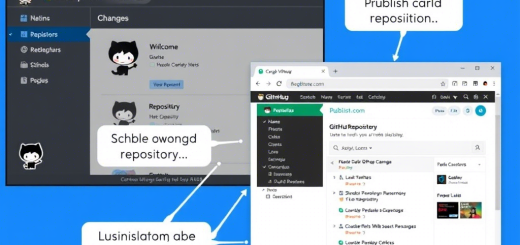Understanding Polymorphism in PHP: A Deep Dive

Polymorphism is a fundamental concept in Object-Oriented Programming (OOP) that allows objects to take on multiple forms. This capability enables a single function, method, or interface to work differently based on the context or object it interacts with. In PHP, polymorphism plays a critical role in creating flexible and scalable applications.
In this blog, we’ll explore the concept of polymorphism, its types, practical examples, and how to implement it in PHP.
What is Polymorphism?
The term “polymorphism” is derived from the Greek words “poly” (many) and “morph” (forms). In OOP, polymorphism refers to the ability of different objects to respond to the same function or method call in their own unique way.
Example:
Imagine a scenario where we have different types of animals. Each animal can make a sound, but the sound differs based on the type of animal. Polymorphism allows us to define a single method, makeSound(), that behaves differently for each type of animal.
Types of Polymorphism
1. Compile-Time Polymorphism (Method Overloading)
Compile-time polymorphism occurs when multiple methods with the same name are defined but differ in the number or type of parameters. While PHP doesn’t natively support method overloading, it can be emulated using variable arguments.
Example:
<?php
class Calculator {
public function add(...$numbers) {
return array_sum($numbers);
}
}
$calc = new Calculator();
echo $calc->add(5, 10); // Outputs: 15
echo $calc->add(1, 2, 3, 4); // Outputs: 10
?>
2. Runtime Polymorphism (Method Overriding)
Runtime polymorphism occurs when a child class overrides a method from the parent class to provide its own specific implementation.
Example:
<?php
class Animal {
public function makeSound() {
return "Some generic sound";
}
}
class Dog extends Animal {
public function makeSound() {
return "Bark";
}
}
class Cat extends Animal {
public function makeSound() {
return "Meow";
}
}
$animals = [new Dog(), new Cat()];
foreach ($animals as $animal) {
echo $animal->makeSound() . PHP_EOL;
}
// Outputs:
// Bark
// Meow
?>
Polymorphism Using Interfaces
Interfaces in PHP are a great way to implement polymorphism. An interface defines a contract that implementing classes must adhere to. This ensures that different classes can be used interchangeably if they implement the same interface.
Example:
<?php
interface Shape {
public function area();
}
class Circle implements Shape {
private $radius;
public function __construct($radius) {
$this->radius = $radius;
}
public function area() {
return pi() * pow($this->radius, 2);
}
}
class Rectangle implements Shape {
private $length;
private $width;
public function __construct($length, $width) {
$this->length = $length;
$this->width = $width;
}
public function area() {
return $this->length * $this->width;
}
}
$shapes = [
new Circle(5),
new Rectangle(4, 6)
];
foreach ($shapes as $shape) {
echo "Area: " . $shape->area() . PHP_EOL;
}
// Outputs:
// Area: 78.539816339744
// Area: 24
?>
Polymorphism Using Abstract Classes
Abstract classes also enable polymorphism by defining methods that derived classes must implement.
Example:
<?php
abstract class Animal {
abstract public function makeSound();
}
class Cow extends Animal {
public function makeSound() {
return "Moo";
}
}
class Lion extends Animal {
public function makeSound() {
return "Roar";
}
}
$zoo = [new Cow(), new Lion()];
foreach ($zoo as $animal) {
echo $animal->makeSound() . PHP_EOL;
}
// Outputs:
// Moo
// Roar
?>
Benefits of Polymorphism
- Code Reusability: Write generic code that works with multiple object types.
- Flexibility: Extend existing code by adding new classes without modifying existing ones.
- Maintainability: Simplify code by reducing the need for multiple conditional statements.
- Scalability: Easily integrate new features or functionalities.
Best Practices
- Use polymorphism to replace conditional statements where possible.
- Ensure that the interface or abstract class provides meaningful methods that all derived classes must implement.
- Avoid overusing polymorphism, as it can lead to overly complex designs.
Conclusion
Polymorphism is an essential aspect of OOP that enables flexibility and scalability in PHP applications. By leveraging method overriding, interfaces, and abstract classes, you can create robust and maintainable code. Understanding and applying polymorphism effectively will significantly enhance your PHP development skills.
In the next blog, we’ll cover Abstraction in detail, exploring how to use it to hide implementation details while exposing essential functionality.
Kushagra Kumar Mishra
Latest posts by Kushagra Kumar Mishra (see all)
- Advanced WordPress Topics: Security, Performance, and Scalability (Part-2) - March 10, 2025
- Troubleshooting and Advanced Topics Part-1 - March 10, 2025
- Website Design and Development - March 10, 2025





Recent Comments